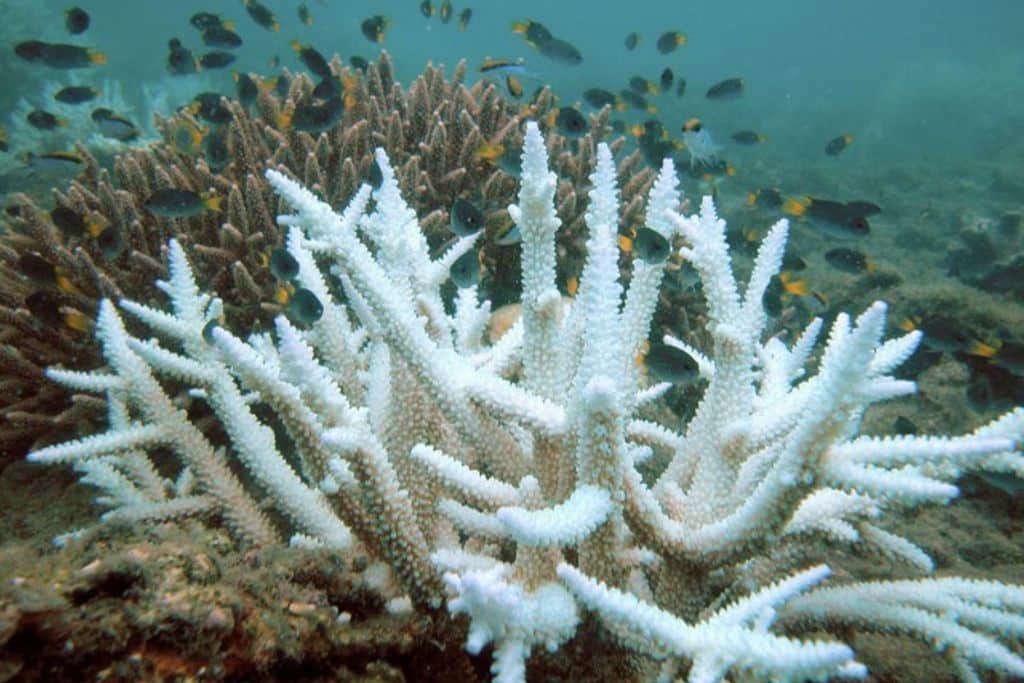

The Earth has entered a new climatic era: warm-water coral reefs are currently acknowledged as the first ecosystem on the planet to have crossed a climate tipping point. The Global Tipping Points Report 2025, spearheaded by the University of Exeter and international partners, indicates that coral ecosystems are experiencing irreversible decline, exacerbated by the increasing stress of rising sea temperatures. Once viewed as vulnerable but recoverable, reefs now verge on systematic collapse, leading to extensive repercussions for marine biodiversity, coastal communities, and global climate feedback.
Nevertheless, within this dilemma exists a slim window of opportunity. If prompt and unified action can safeguard remaining reef patches and reverse warming trends, some coral bastions may endure. Experts now caution that the destiny of coral reefs will act as a vital test of humanity’s capability to stabilize the climate system, as what transpires beneath the waves could dictate the resilience of life throughout the planet.
**How increasing temperatures drove the coral reef over the edge**
Soaring global temperatures are now inducing the most widespread and rapid decline of coral ecosystems ever documented. Since oceans absorb more than 90% of the excess heat trapped by greenhouse gases, even slight rises in global temperature significantly affect marine life. Marine heatwaves, now up to 50% more frequent than during the pre-industrial period, compel corals to expel their symbiotic algae, depriving them of energy and color. Lacking these algae, corals find it difficult to grow or reproduce effectively, rendering entire reef structures susceptible to collapse.
The Global Tipping Points Report 2025 recognizes the world’s warm-water coral reefs as the first significant ecosystem to breach a tipping point. When global warming climbed to approximately 1.2 degrees Celsius (2.16 degrees Fahrenheit) above pre-industrial levels in the early 2020s, mass bleaching events escalated and recovery rates dwindled. Coral reefs began to lose their capacity to rebound between heatwaves, transitioning from vibrant ecosystems that nurtured one quarter of all marine life to degraded rubble fields. Currently, average warming has already reached around 1.4 degrees Celsius (2.5 degrees Fahrenheit), and forecasts indicate that by 2030, the planet is likely to surpass 1.5 degrees Celsius (2.7 degrees Fahrenheit). At that threshold, nearly all remaining warm-water reefs are anticipated to endure recurrent bleaching severe enough to induce widespread mortality.
However, small patches of resilience persist. Reefs in cooler currents, deeper waters, or naturally variable temperature zones have exhibited greater endurance. They present a potential refuge for biodiversity, but only if we safeguard them. The report emphasizes that these surviving fragments could establish a foundation for future regeneration if global emissions are swiftly curtailed to stabilize temperatures and ultimately lower them below critical thresholds. The future of these remaining coral reef bastions hinges on decisions made within this decade.
**Ecosystem on the brink**
The decline of the coral reefs signals merely the onset of a broader planetary transformation. Scientists caution that several significant ecosystems are now nearing or exceeding their own climate thresholds. The Global Tipping Point Report underscores increasing alarm over the Amazon rainforest, which is losing its resilience as deforestation, drought, and warming drive extensive regions toward transformation into savannah. Such a transition would release vast carbon reserves and undermine one of Earth’s most essential climate regulators. Similarly, accelerated melting of polar ice sheets, alterations in boreal forests, and disruptions to ocean circulation patterns suggest that the planet’s stabilizing feedback mechanisms are deteriorating. These interlinked systems exacerbate one another, meaning that the failure of one amplifies the stress on the others.
Yet amid these alerts, the report also points to reasons for cautious hope. Across various sectors, indicators of positive tipping points (self-reinforcing shifts toward sustainability) are beginning to surface. The growth of renewable energy, reforestation initiatives, and the global phaseout of fossil fuels are proceeding faster than anticipated. Local conservation efforts are showcasing that ecosystems can rebound when provided with space and protection. Scientists stress that if societies can expedite these positive transformations, the cascading effects could restore stability and resilience across the biosphere. The fate of coral reefs, the Amazon, and other endangered systems may ultimately depend on how swiftly humanity can activate these transformative pathways toward recovery.